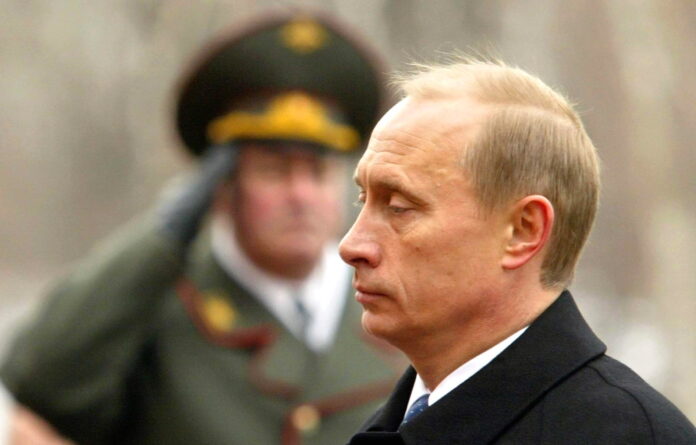Author: Ivo H. Daalder and James M. Lindsay
Affiliation: President of the Chicago Council on Global Affairs and Former US Ambassador to NATO (2009 to 2013), Director of Studies at the Council on Foreign Relations
Organization/Publisher: Foreign Affairs
Date/place: April 7, 2022/Washington DC, USA
Type of Literature: Analysis
Word Count: 2524
Link: https://www.foreignaffairs.com/articles/russian-federation/2022-04-07/why-putin-underestimated-west
Keywords: The West, Russia, Ukraine, Sanctions
Brief:
Putin’s misjudgment and underestimation of the West, according to the authors, stems from the poor international response to Russia’s prior actions, such as the invasion of Crimea and his support for the Syrian dictator Bashar al-Assad. All these factors led him to believe that the West would abandon Ukraine. Putin assumed that as a result of Trump’s presidency and the Biden administration’s exit from Afghanistan, the invasion would divide the US and its European allies. As the authors state, security challenges have frequently been overlooked by the West; albeit when their security and interests have been challenged hard enough, they react with speed, resolve and strength. Democracies have historically been prone to unstable proprieties, even when they are capable of establishing a rapid and united front against exceptional challenges. In the long run, to achieve that goal, the US and its allies must overcome political divisiveness, shifting economic burdens, and leadership changes that have previously fractured the West. The authors mention the incident when Putin sent Russian forces to Georgia, after which the French president hurried to arrange a cease-fire that preserved Russian gains, while the US and other European countries refused to impose sanctions. Putin’s occupation of Crimea elicited just a marginally harsher response; Russia was kicked out of the G-8 and faced minimal penalties. However, both the US President and the German Chancellor initially refused to deploy lethal military aid to Ukraine to help it defend itself. The authors state that rather than dividing the West, Putin’s attack on Ukraine brought it together. The US and its allies have banded together to impose sanctions against Russia, and politically, the UN Security Council condemned the invasion, but couldn’t implement it because of Russia’s veto. The UN has issued a general demand on Russia to leave the Ukraine. Both authors believe that if Putin had just taken another piece of Ukraine, Biden might have found himself in a situation where the NATO alliance was split on whether the redline was crossed or not. For the West to be unified, it must not be allowed to weaken since Putin will most probably try to exploit any divisions within the alliance. To avoid this, the authors assert that diplomacy needs to take place and they advise (as a start) to expand the G-7 to include other states which will provide a counterweight to the pressures facing the democratic states.
Critical Commentary: Both authors in this article propose an explanation for Putin’s misjudgments and the reason behind his way of thinking. However, they do not give a reason that explains why the West is reacting the way it is after keeping a blind eye to all actions taken by Russia previously. The West ignored the annexation of Crimea and the dismembering of Georgia, as well as Russia’s support to the Syrian dictator Bashar Al-Assad. This displays the double standards that the West holds—it only takes action when its interests are at stake. Furthermore, Russia did not predict that the people of Ukraine would resist Russia’s invasion the way they have. Moreover, all the West could do is isolate Russia from the global economy by imposing sanctions; Western nations could not really intervene in a manner in which they could fight, since this could lead to a major war. On the other hand, no matter how effective sanctions could be in impaling the Russian economy, it is not clear whether they could bring about the desired effect of stopping the invasion. Isolating Russia could have an impact but it will mostly affect the ordinary people. For the wealthy, it will be a matter of inconvenience but they won’t suffer as much. Putin may not see the imposed sanctions as reason enough to stop his incursion, especially since he started this war from an ideological standpoint. Putin may have thought that the West would not react to its invasion of Ukraine, however the West also underestimated Putin and the lengths he could take to achieve his goal, albeit whether he will be successful in his quest is yet to be seen.
By: Sara El Souhagy, CIGA Research Intern




